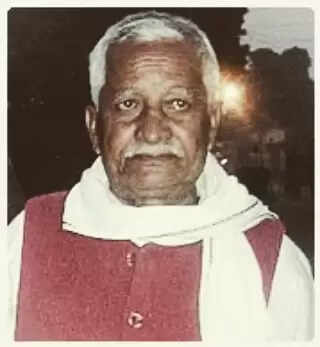Mumbai, October 21 (IANS). Adam Gondvi, whose real name was Ramnath Singh, is one of the few poets in Hindi literature who targeted social injustice, poverty, casteism and political corruption through his sharp and courageous poems. He was born on 22 October 1947 in a poor farming family in the village of Atta Paraspur in the Gonda district of Uttar Pradesh. Exposed to the harsh realities of rural life from childhood, Adam portrayed the suffering of the common man so powerfully in his poems that he was called the ‘second Dushyant Kumar’. His major works include the poetry collections ‘Dharti Ki Surface Par’ and ‘Time Se Encounter’, which became the voice of Dalits, marginalized people and exploited classes. Adam’s ghazals are not only a weapon of criticism but also the spark of revolution—like his famous lines: “Where someone passes with a body covered in torn clothes / Understand that the route goes to ‘Adam’s’ village.” Adam Gondvi has been called “folk poet” and “poet of rebellion”. Works focusing on his life and poetry, such as ‘Adam Gondvi: Life and Poetry’, confirm that the purpose of his pen was not simply to attract applause, but to show a mirror to the system. One such memorable incident that defined his career is the publication of his most famous and adventurous work ‘Main Chamaron Ki Gali Tak Le Chalunga Aapke’. Adam Gondvi’s literary career came at a unique time where he decided to become the voice of the oppressed by putting his personal safety and social respect on the line. Hailing from the Thakur family of Gonda, Uttar Pradesh, Ramnath Singh may have completed his formal education only up to primary, but his life experiences have made him the greatest scholar of sociology. His poems and ghazals became popular in mushairas by then, but the real revolution in his career came from his first long poem ‘Main Chamaron Ki Gali Tak Le Chalunga Aapke’. This poem made him a national poet from a regional poet. This work was not just a description of poverty or famine, it was a horrifying story of the gruesome rape of Dalits, especially a Dalit girl, in rural Uttar Pradesh and the subsequent atrocities committed by the feudal Thakurs (their own community) on the Dalit colony with the help of the police. At that time, it was an unprecedented literary rebellion for an upper caste poet to reveal the exploitation and cruelty of his own caste in such a stark and frank manner and to stand on the side of the exploited. Adam Gondvi not only received literary praise for this poem, but he also had to face severe social opposition and exclusion within his village and community. He lived the life of a farmer until his last breath, rejecting any temptation of power. Adam proved through his pen that the greatest duty of a poet is to speak the truth and stand on the side of the exploited. This creation of his became the principle of his career, which took Hindi Ghazal out of the gatherings and directly into the field of suffering and resistance of the common people. This poem is still a sharp commentary on Indian politics and social justice, in which he says: “The weather of the village is rosy in your files, but the numbers are false, this claim is bookish. … Come, feel the heat of life, I’ll take you to cobbler’s street.” He died of cirrhosis of the liver on December 18, 2011 in a Lucknow hospital, but his works continue to inspire the fight for social justice even today. –IANS JP/DKP
Poet of Public Voice: Adam Gondvi and the Rebellion of ‘Chamar Ki Gali’
